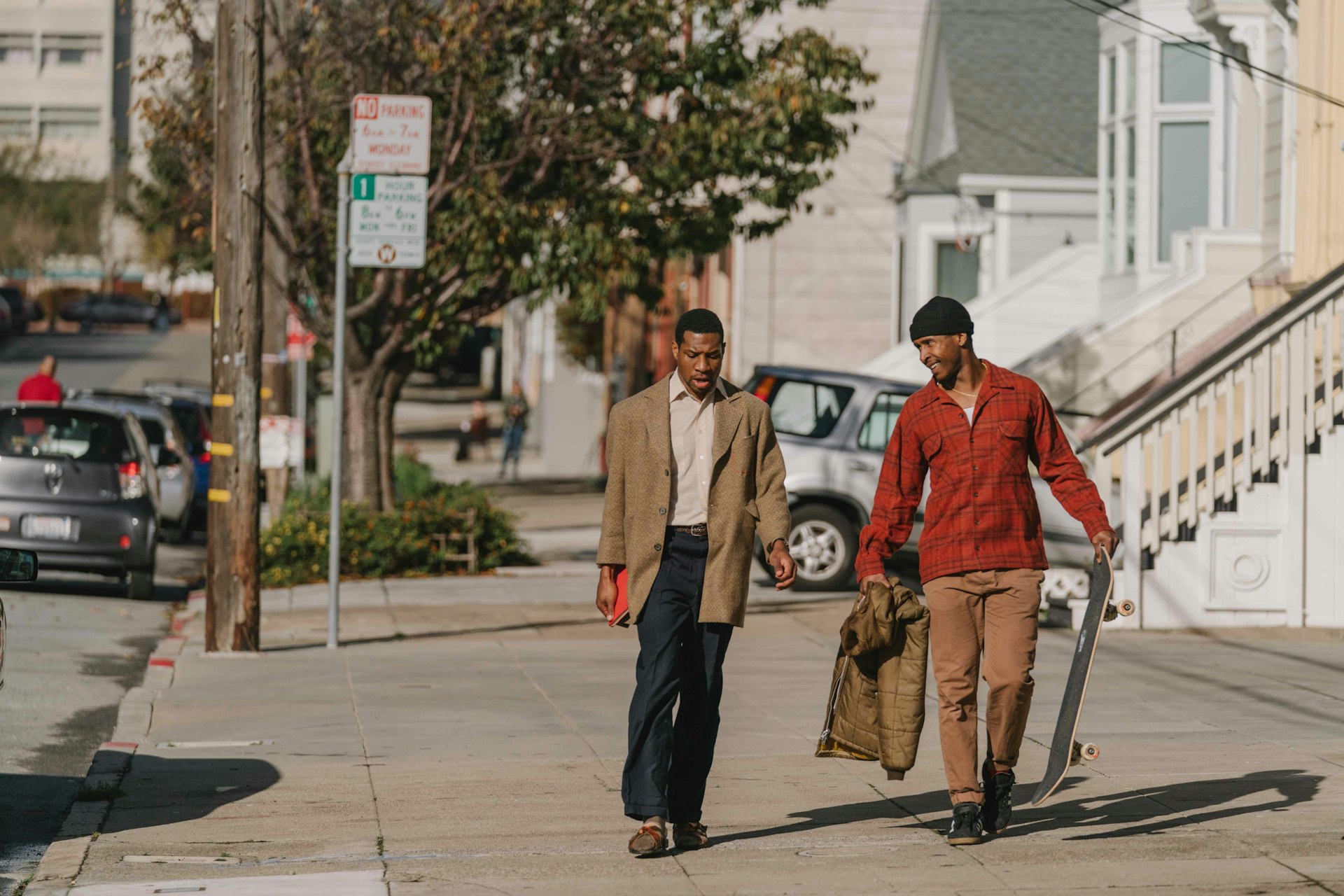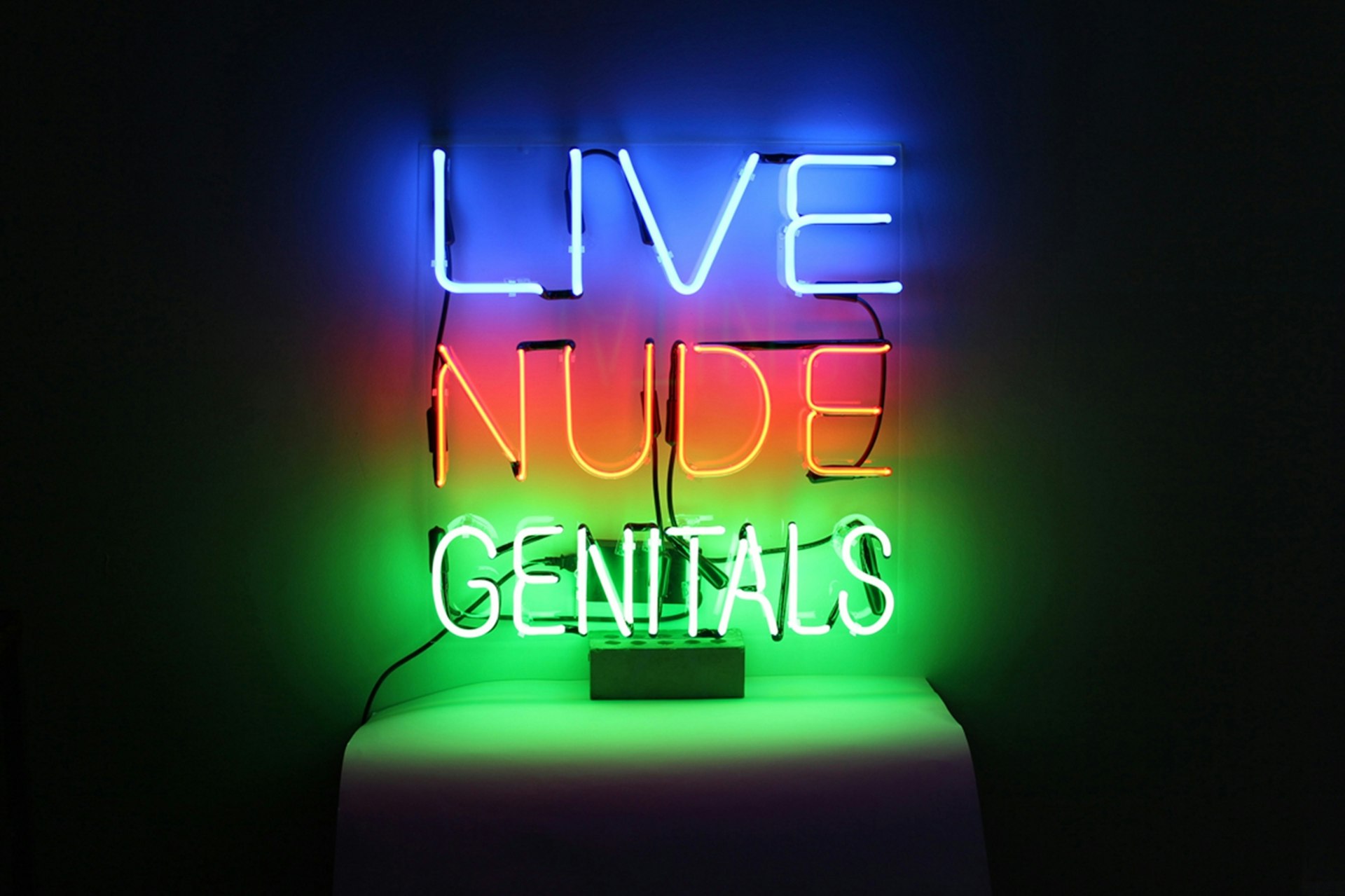
Bruce LaBruce on art, porn and queer sex work
- Text by Miss Rosen
- Photography by Leslie-Lohman Museum
As historian George Chauncey noted in his 1994 book Gay New York, before the word “gay” was used to describe homosexuality, it was common parlance for a sex worker. It’s a telling reminder of how long these historically marginalised communities have been intertwined.
In the new exhibition, On Our Backs: The Revolutionary Art of Queer Sex Work, curator Alexis Heller brings together the work of LGBTQ sex workers, activists, and allies. The featured art responds to issues of HIV/AIDS, immigration, labour, housing, racial justice, gender, community healing and liberation.
Although sex work has always been a large part of queer culture, its significance is often diminished or erased. “It’s always interesting and fascinating the way prostitution is portrayed in the mainstream and in movies,” says filmmaker Bruce LaBruce, who will be exhibiting Refugees Welcome, a new short film made in Berlin three years ago, at the museum in a peep show style environment.
“It’s rare for characters who are prostitutes or hustlers to be represented in a way other than as disposable, criminal or marginalised. Maybe Hustlers will change that, but I’m sure that’s in a completely capitalist context. People think they can take over the system and become the powerful ones, without changing the system whatsoever.”
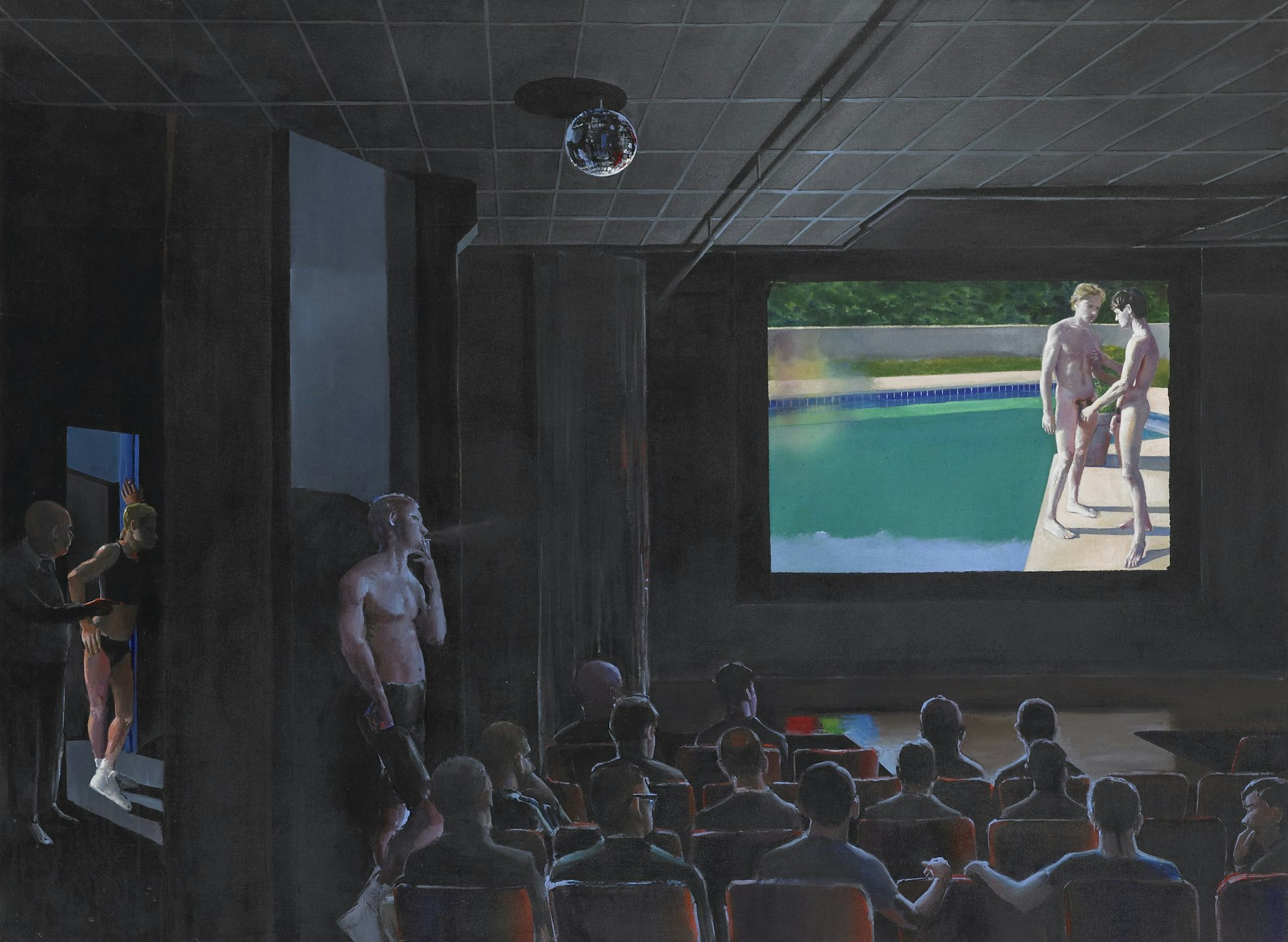
Patrick Angus, Hanky Panky, 1980. Courtesy of the Estate of Patrick Angus Collection of the Leslie-Lohman Museum

Leon Mostovoy. Market Street Cinema series 1987-88. Courtesy of the artist and ONE Archives at the USC Libraries.
For LaBruce, the path into pornography was an organic one. “My first significant boyfriend was a male prostitute who was gay for pay so it was a strange relationship,” he recalls. “I put him in some of my short movies and wrote my first feature film, That’s No Skin Off My Ass, based on him. I had my next boyfriend play him.”
On Our Backs is about more than art, culture, and industry – it’s about community and communion. Featuring works by Robert Mapplethorpe, David Wojnarowicz and Pluma Sumaq, among others, the exhibition takes its name from the seminal lesbian erotic magazine founded in the United States in the ’80s. The title also refers to the fact that the LGBTQ community has long been leading the fight for the rights of all sex workers.
“As a pornographer, I consider myself part of being in the sex trade industry,” says LaBruce. “I performed sexually in my first several films, so I consider myself a porn actor as well. I have always expressed solidarity with sex trade workers. All these professions that people look down their noses on are the people I have identified with.”
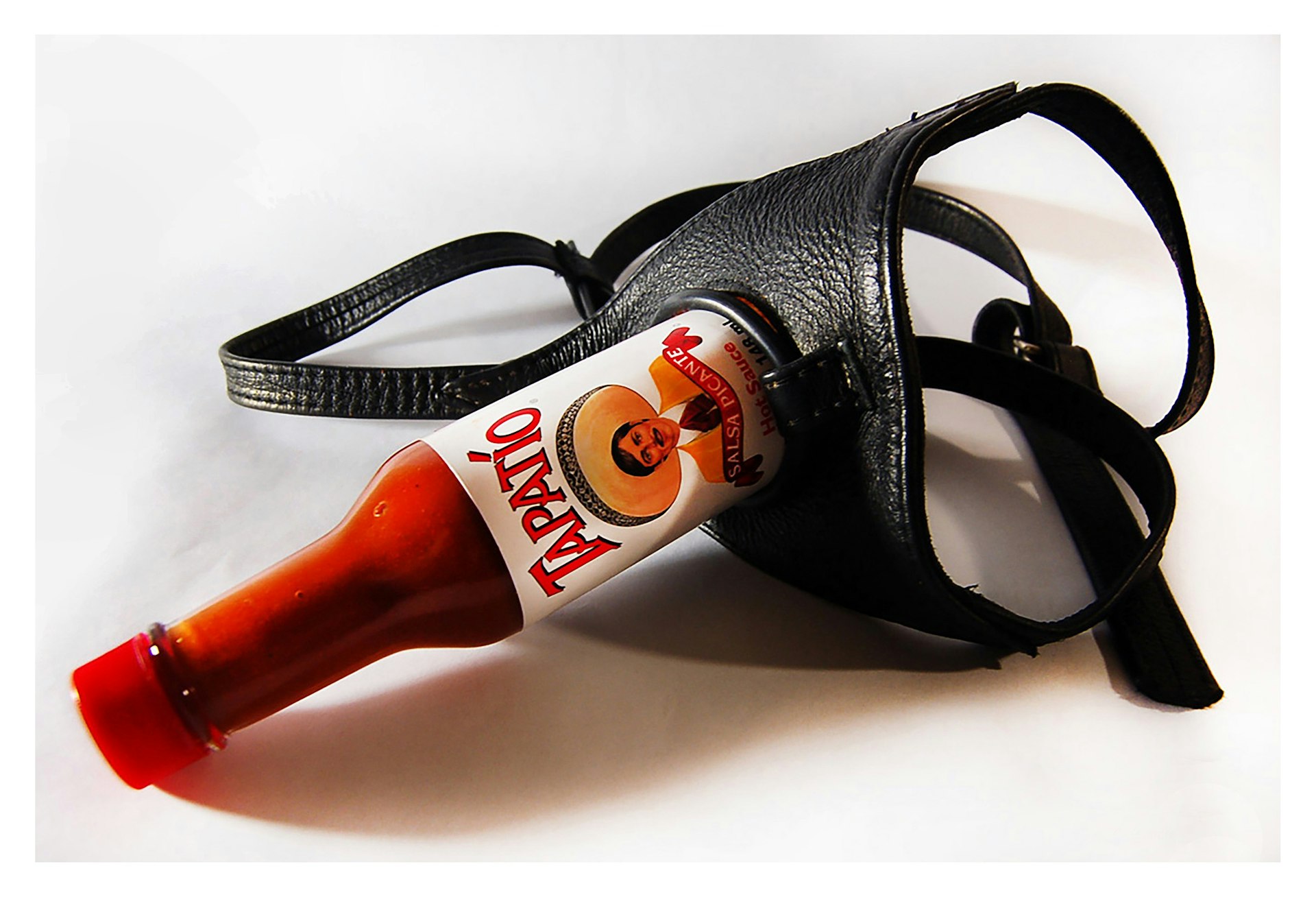
Xandra Ibarra. Tapatio Cock (2004) Courtesy of the artist.

Bruce LaBruce. Refugee’s Welcome (film still) 2017. Courtesy of the artist
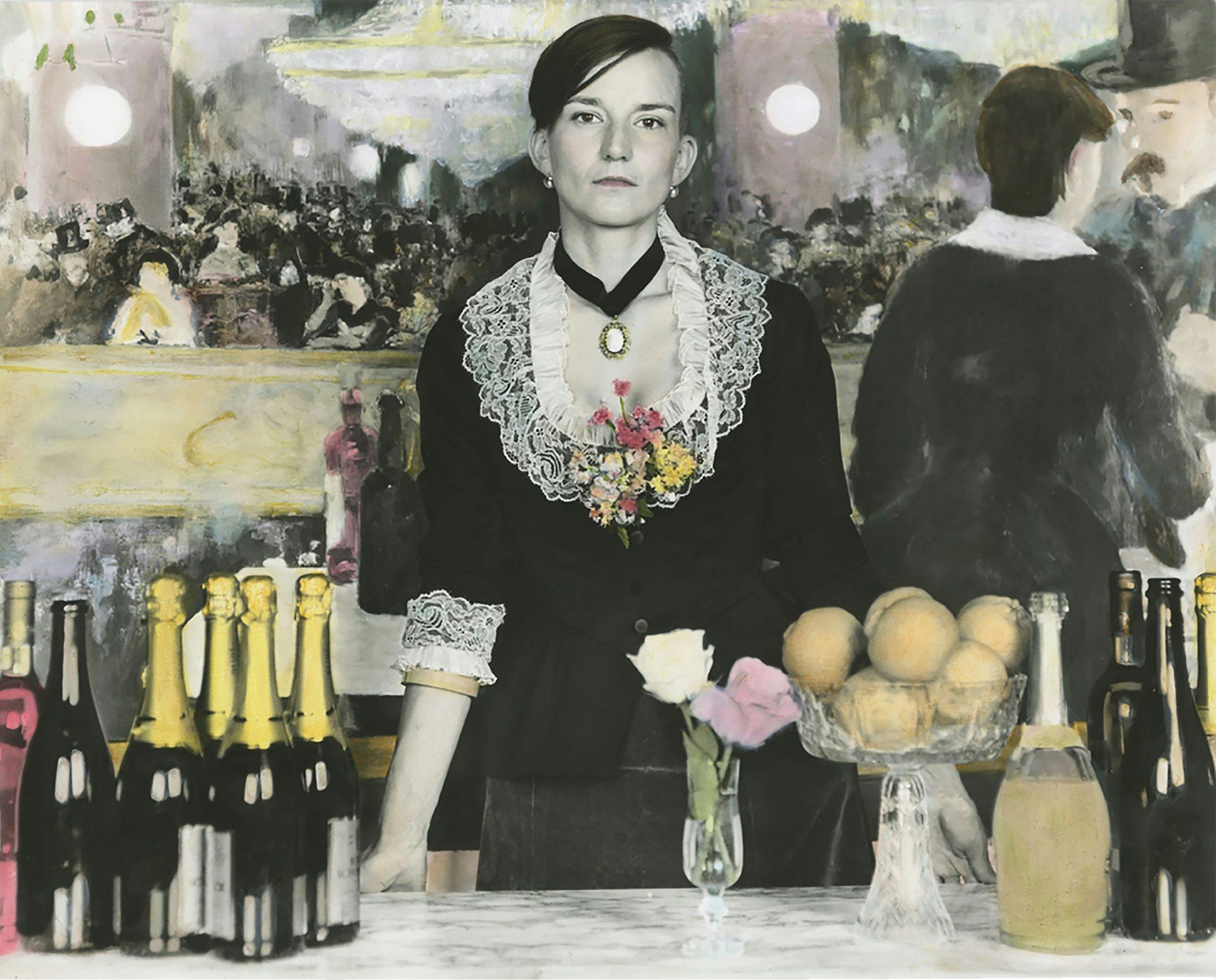
Juniper Fleming. Bar at Folies Bergère, 2015/2018. Courtesy of the artist © Juniper Fleming
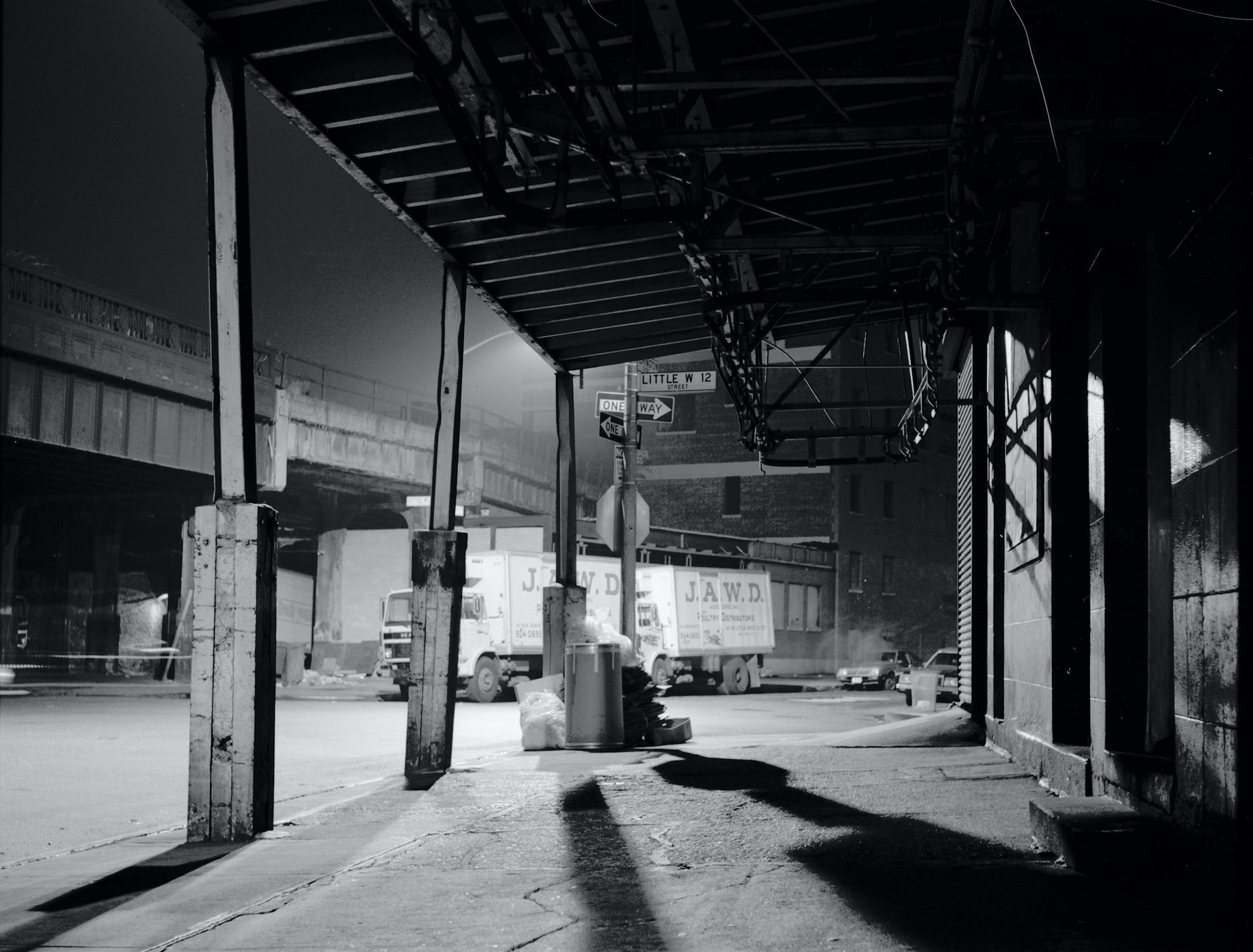
Efrain John Gonzalez. Little West 12th Street, 1986/2019. Courtesy of the artist
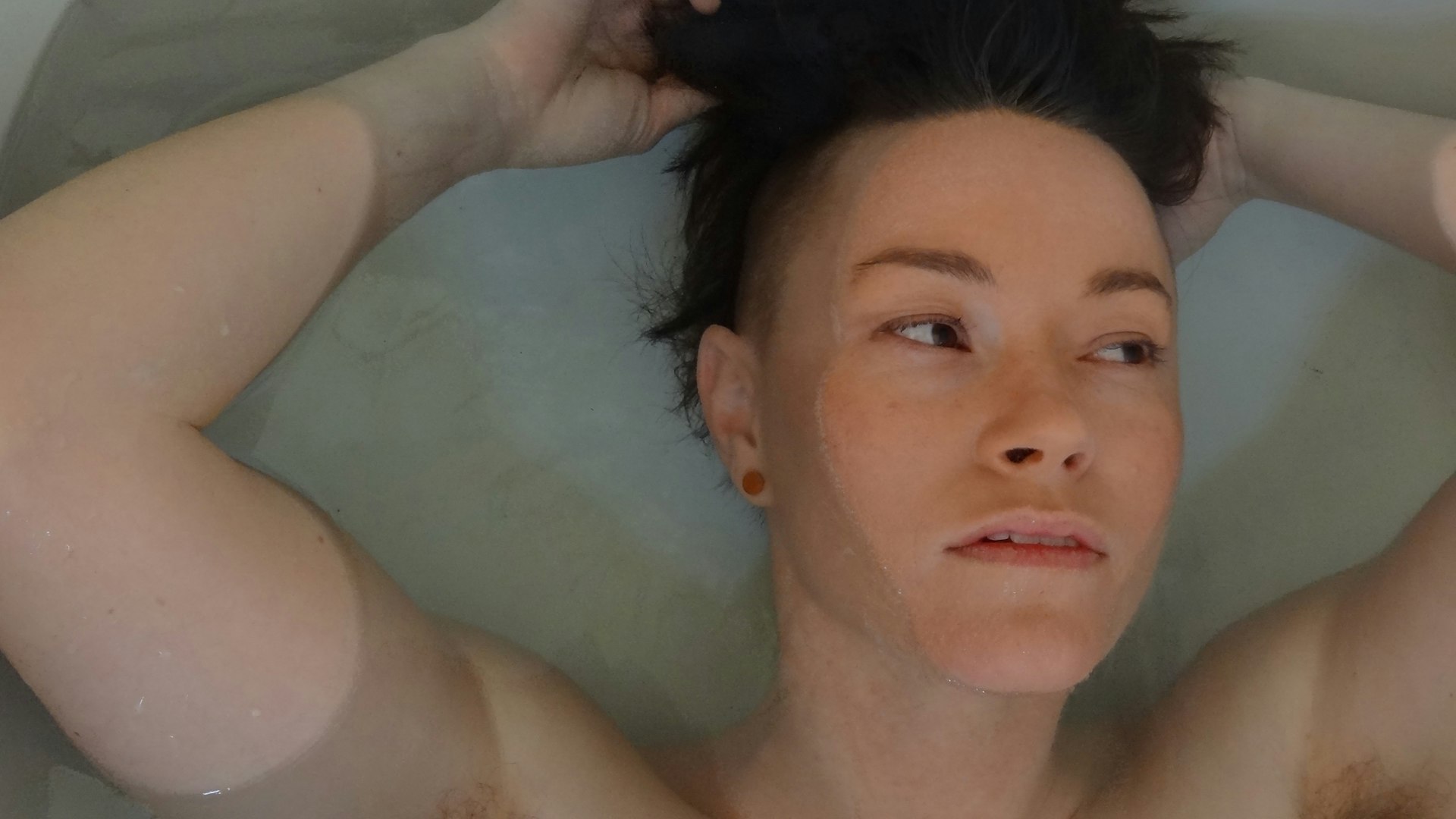
Ms. Naughty. Dear Jiz (video still #1) 2013. Courtesy of BrightDesire.com
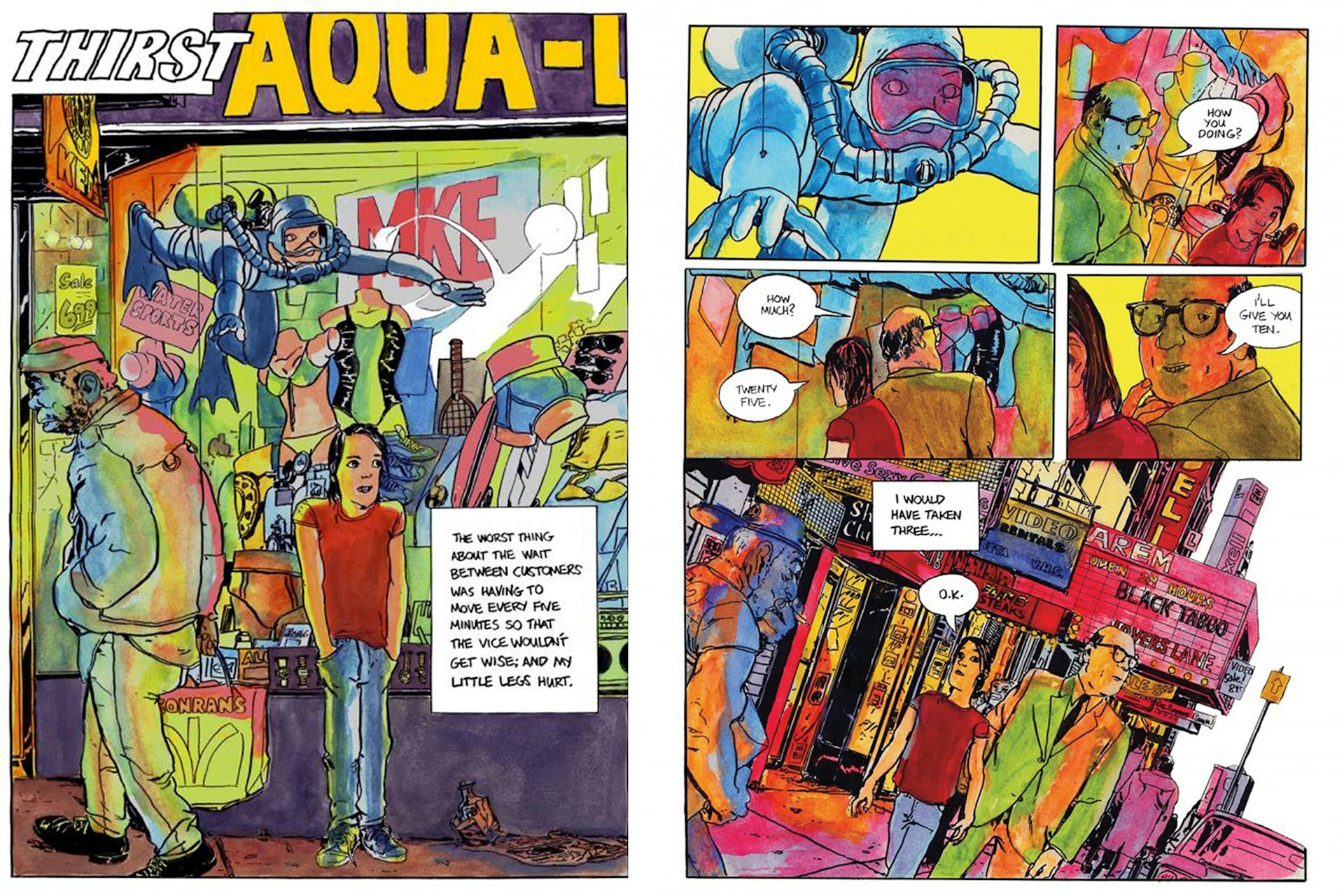
James Romberger, Marguerite Van Cook, and David Wojnarowicz. Untitled (print from 7 Miles a Second) 1996/2019. Courtesy of the artists and Ground Zero Books
On Our Backs: The Revolutionary Art of Queer Sex Work is on view at the Leslie-Lohman Museum in New York, September 28, 2019-January 19, 2020.
Follow Miss Rosen on Twitter.
Enjoyed this article? Like Huck on Facebook or follow us on Twitter.
